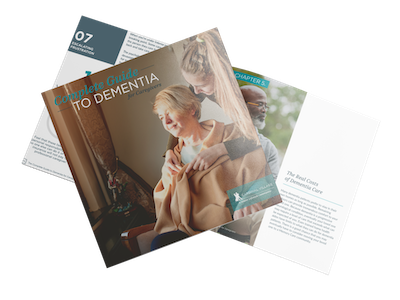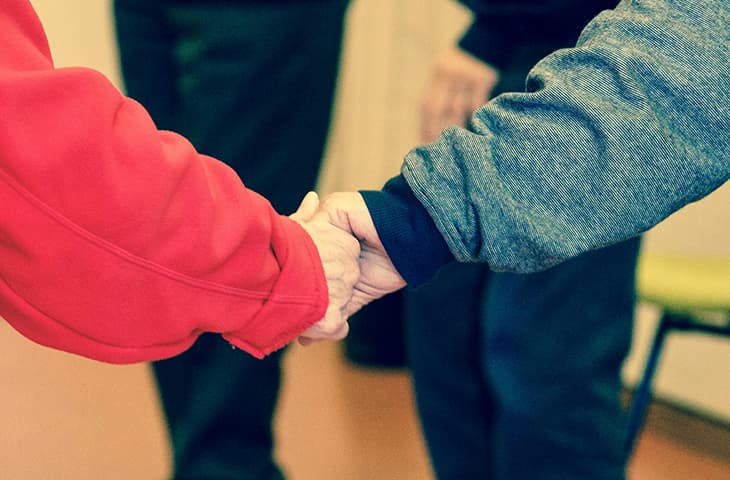10 Things You Know If You Care For Someone With Dementia

Living with someone with dementia is a unique and challenging journey that requires patience, empathy, and understanding. Dementia not only affects the diagnosed individual but also has a profound impact on their caregivers and family.
Here are 10 insights that those caring for a loved one with dementia often come to understand:
1. Prioritize Patience
Dementia can lead to changes in behavior and cognitive abilities, which may manifest as repetitive questioning, confusion, or agitation. Patience is crucial in such situations, as it allows caregivers to respond calmly and empathetically.
Developing patience involves understanding that the person with dementia is not intentionally causing difficulties but is instead experiencing symptoms of their condition. By recognizing this, caregivers can approach challenging situations with compassion and understanding.
Practicing mindfulness techniques, such as deep breathing or taking a moment to pause and collect one’s thoughts, can help caregivers maintain patience during stressful moments.
2. Embrace Flexibility
Dementia is a progressive condition, and the needs and abilities of the person with dementia may change over time. Being flexible allows caregivers to adapt to these changes and modify their approach accordingly.
Flexibility involves being open to new routines, strategies, and caregiving techniques as the situation evolves. This may require letting go of preconceived notions or expectations about how things should be and instead focusing on what is most beneficial for the person with dementia.
Creating a supportive environment that allows for flexibility can help minimize stress for both the caregiver and the person with dementia. This may include setting realistic expectations, seeking assistance when needed, and being willing to adjust plans as necessary.
3. Communicate Clearly
Effective communication is essential for maintaining connection and understanding between caregivers and individuals with dementia. This may involve using simple language, speaking slowly and clearly, and providing visual cues or gestures to aid comprehension.
Listening attentively and validating the person’s feelings and experiences can help foster trust and rapport. It’s important to be patient and give the person with dementia ample time to express themselves, even if their speech is slow or fragmented.
Non-verbal communication, such as facial expressions and body language, plays a significant role in communication with individuals with dementia. Caregivers should pay attention to these cues and respond accordingly to ensure mutual understanding.
As dementia progresses, communication abilities may decline, making it necessary to adapt communication strategies. This may include using alternative forms of communication, such as pictures or touch, to convey messages effectively.
Download The Complete Guide to Dementia for Caregivers
Download the Guide4. Value Routine
Establishing a consistent routine can provide structure and predictability for individuals with dementia, reducing anxiety and confusion. Routines can help reinforce daily activities such as mealtimes, personal care, and medication management.
Caregivers should aim to create routines that are tailored to the preferences and abilities of the person with dementia. This may involve incorporating familiar activities and rituals that bring comfort and familiarity.
Communicating changes in routine clearly and providing reassurance can help minimize distress for individuals with dementia. Caregivers should strive to maintain consistency while also being responsive to the person’s evolving needs.
5. Remember Self-Care
Caring for someone with dementia can be physically, emotionally, and mentally demanding, making self-care essential for caregivers’ well-being. Prioritizing self-care allows caregivers to recharge and maintain their health and resilience.
Self-care practices may include setting boundaries, seeking support from friends and family, engaging in hobbies and leisure activities, and attending to physical health needs, such as exercise and nutrition.
Recognizing and acknowledging one’s own limitations is an important aspect of self-care. Caregivers should be realistic about what they can reasonably manage and be willing to ask for help when needed.
Respite care, which involves arranging for temporary relief from caregiving duties, can provide caregivers with much-needed breaks and opportunities for rest and rejuvenation. It’s essential for caregivers to proactively plan for respite care and prioritize their own well-being.
6. Navigate Changes
As dementia progresses, relationships undergo significant changes that can be emotionally challenging for both the individual with dementia and their caregivers. It’s essential to approach these changes with understanding, compassion, and adaptability.
As the cognitive abilities of the person with dementia decline, it’s common for roles within the relationship to shift. Caregivers may need to take on more responsibilities, both practical and emotional, while also adjusting their expectations of the relationship.
Recognizing that the dynamics may change but that love and connection can still exist in different ways can help ease the transition.
7. Educate Yourself
Understanding dementia and its progression is crucial for providing effective care and support. Caregivers should take proactive steps to educate themselves about the condition, including its symptoms, stages, and available treatments.
Learning about the medical and legal aspects of dementia care can help caregivers make informed decisions and advocate for the best interests of their loved one. This might involve understanding treatment options, managing medications, and planning for future care needs, including advanced directives and power of attorney.
Familiarize yourself with the numerous resources available to support caregivers of individuals with dementia, including informational websites, support groups, respite care services, and community-based programs. Taking advantage of these resources can provide valuable support, guidance, and respite for caregivers throughout their journey.
8. Find Support
Caregiving for someone with dementia can be emotionally and physically demanding, and it’s essential for caregivers to have access to support networks that can offer understanding, guidance, and encouragement.
Connecting with other caregivers who are facing similar challenges can provide validation, empathy, and practical advice. Support groups, either in-person or online, can serve as a valuable source of peer support and solidarity.
Also consider professional support services, such as counseling, therapy, or support groups facilitated by trained professionals. These services can provide a safe space to process emotions, develop coping strategies, and learn effective caregiving techniques.
9. Provide Safety
People with dementia need to live in a safe environment. Depending on their living arrangements, some adjustments may need to be made. There are several actions you can take.
Clear obstructions and loose rugs. Falls are a serious risk for any senior, and especially for those with dementia. Make sure walkways are safe and have walkers or canes available to help with mobility.
Provide safe outdoor areas. Getting outside can provide a joyful experience, but balance that with safe enclosures that keep them from wandering or climbing.
Although people may be able to drive safely in early stages of the condition, memory and decision-making skills will continue to decline. You or someone else will need to be the driver for safety’s sake.
10. Embrace the Moment
Despite the challenges of dementia caregiving, there are still moments of joy and connection to be found during the journey. Caregivers should actively seek out and embrace these moments, no matter how small, as they can provide comfort, strength, and resilience.
Practicing gratitude can help caregivers focus on the positive aspects of their caregiving experience and find joy in everyday moments. Keeping a gratitude journal, reflecting on moments of connection and love, and expressing appreciation for small acts of kindness can foster a sense of positivity and resilience.
Building and maintaining meaningful connections with the person with dementia can create opportunities for moments of joy and connection. Engaging in activities that bring joy and laughter, reminiscing about shared memories, and expressing love and affection can strengthen the bond between caregivers and their loved ones.
Get Peace of Mind and Comfort at Senior Lifestyle
Caring for someone with dementia is a complex experience. By embracing patience, flexibility, and self-care, caregivers can navigate this journey with compassion and resilience. Remembering these insights can help provide support and understanding for both the person with dementia and their caregivers.
Senior Lifestyle communities can help ease your mind when it’s time to get help. With our respite care services, you can take a break from caregiving while your loved one gets to experience our award-winning Memory Care program, Embrace, which is designed to support both the caregiver and loved one. In our Memory Care communities, they’ll find coordinated, comprehensive programming to comfort them.
Find out more about Senior Lifestyle or schedule a visit today.
The post 10 Things You Know if You Care For Someone With Dementia appeared first on Senior Lifestyle.


